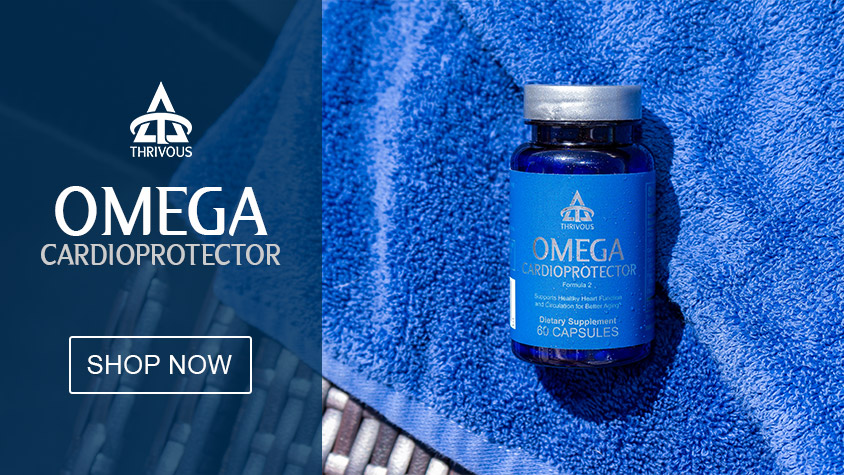Omega 3 Supplements May Combat Cellular Aging and Stress

Scientists examined the impact of omega-3 supplements on cellular aging-related biomarkers. And they found reasons to recommend omega-3 supplements.
It has been suggested that omega-3 supplements may lessen accelerated aging and early mortality. Previous studies indicate that men and women in the top 20 percent of omega-3 fatty acid intake had 15% and 18% lower cardiovascular disease mortality 16 years later, respectively. That's compared to those in the lowest 20 percent.
There is also evidence that omega-3 promotes longevity at a cellular level. In fact, higher blood levels of omega-3 are associated with longer telomeres.
Telomeres are DNA segments at the end of chromosomes. They help to maintain genomic integrity during cell division. And, thereby, they promote healthy cellular aging. There are indications that short telomeres accelerate age-related disease, especially cardiovascular disease.
Another benefit of omega-3 supplements that has been suggested by previous studies is that they may regulate the response to stress. And, therefore, they may reduce the severity of stress and support healthy mood.
A research paper is published in Nature Molecular Psychiatry. It summarizes previous results of the trial. They showed that 4 months of omega-3 supplementation lowered basal inflammation and oxidative stress.
The study also provided new data related to the stress response of biomarkers relevant to telomere length and cellular aging. Biomarkers included cortisol, inflammatory cytokines, and telomerase.
More than 100 sedentary, overweight, middle-aged participants of both genders received either omega-3 or a placebo for four months. Before and after the trial, participants underwent the Trier Social Stress Test. It's a standard acute stress test that reliably provokes strong stress-related physiological responses.
The scientists measured salivary cortisol, telomerase in peripheral blood lymphocytes, and inflammation-related cytokines (various types of interleukin). It appears that omega-3 supplements altered telomerase, stress reactivity, overall cortisol, and inflammation levels. By lowering overall inflammation and cortisol levels during stress, and by boosting repair mechanisms during recovery, omega-3 may slow accelerated aging and enhance mood.
The new results of the trial indicate that four months of omega-3 supplements led to a profile of stress resilience. This was manifest in lower overall levels of cortisol and inflammation during stress, and higher levels of telomerase and anti-inflammatory activity during recovery.
The results have direct relevance to aging biology and psychiatry. The scientists emphasize that, in the US, dietary intake of omega-3 is well below the values recommended by, for example, the Academy of Nutrition and Dietetics.
While cautioning that these findings are preliminary and need to be replicated for validation, the scientists suggest that omega-3 supplements may limit the impact of repeated stress on cellular aging and depression risk.
Each serving of Thrivous Omega Cardioprotector provides a clinical dose of Omega 3 Lysine Complex. This form of Omega 3 is five times more bioavailable than traditional fish oil, and has a longer shelf life. Thrivous designed Omega Cardioprotector to enhance heart function and circulation for better aging. As indicated above, the Omega 3 in Thrivous Omega may also combat cellular aging and stress.
More Articles
Don't fall behind! Thrivous monitors new human studies of nootropic and geroprotector supplements, so you can make the best decisions based on the latest science. Supplement Science Updates are part of the free Thrivous newsletter. Subscribe now to receive email about human enhancement, nootropics, and geroprotectors, as well as company news and deals.
Read more articles at Thrivous, the human enhancement company. You can browse recent articles in Thrivous Views. See other Product Ingredient or Supplement Science Update articles. Or check out an article below.
-
Cellular Rejuvenation Achieved in Laboratory Mice
Scientists at Salk Institute and Genentech have shown that they can safely and effectively reverse the aging process in middle-aged ...
-
MRI with Genetic Reporter Builds Map of Brain Activity
MIT researchers have devised a way to monitor individual populations of neurons. It can reveal how the neurons interact with ...



